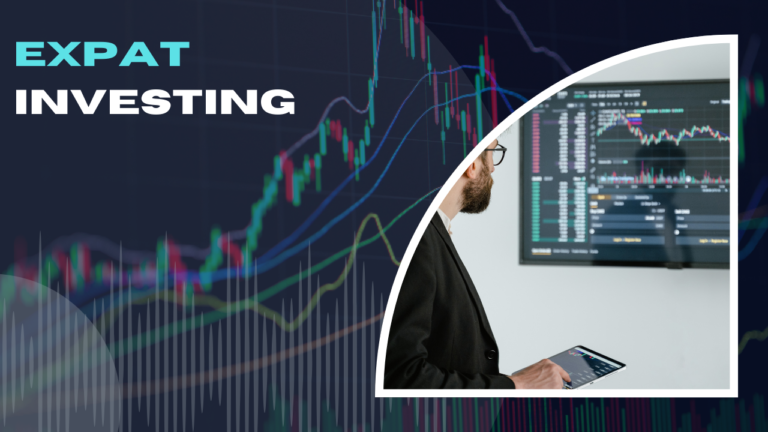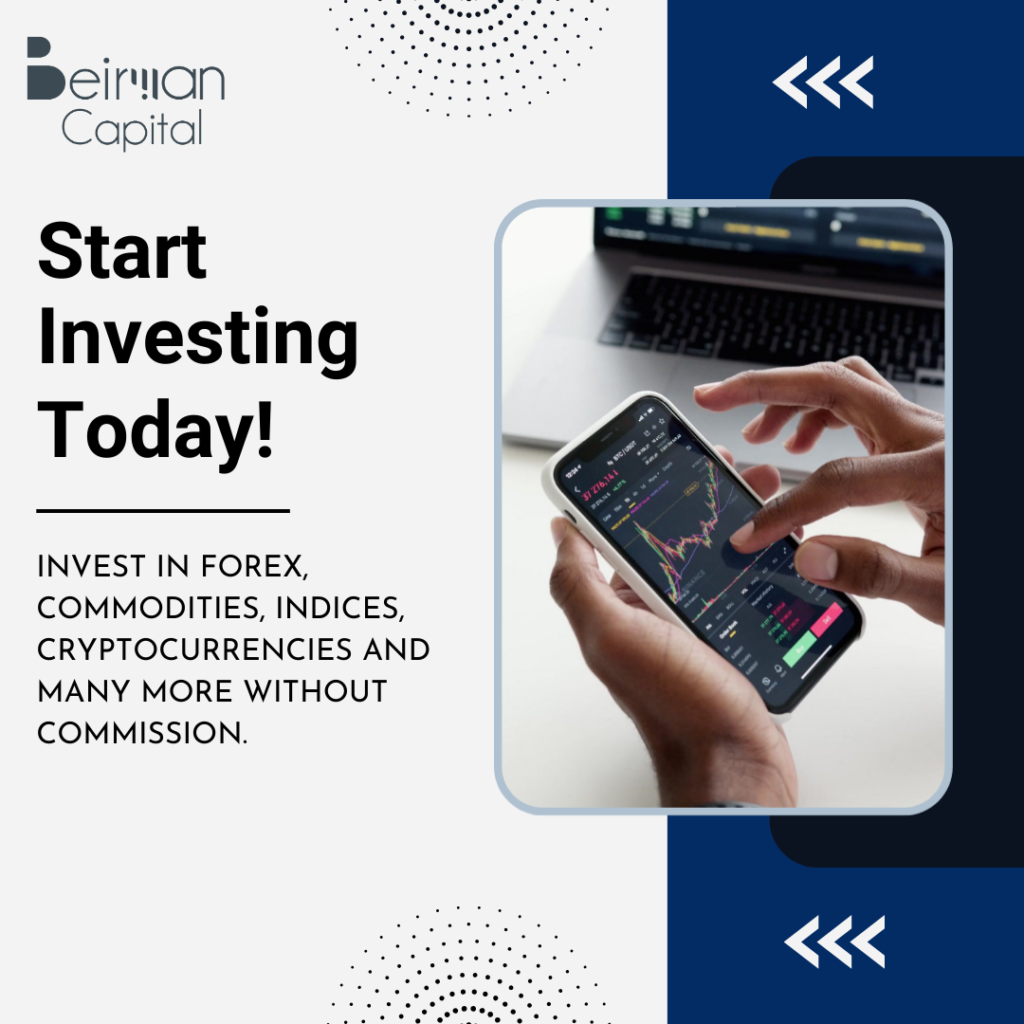Expat Investing: Tips to Manage Trading as an Expat
Expats are people living abroad for work or any other purpose. Discover the amazing ways of expat investing and find out the tips to trade like a pro.
Table of Contents
Many people travel across the world and move to different countries for different reasons. In today’s world, shifting to a different city is challenging, so shifting to a different country is far more challenging. One of the biggest challenges expats face is managing their personal finances, wealth, and investment decisions.
The geographical shift leads to changes in culture, lifestyle, expense, income, and many other factors. However, one of the biggest changes it brings is to personal finance and investment decisions.
Being a reputable broker, Beirman Capital has many expat clients who struggle to manage trading and investing activities. So, in this blog, we will learn about expat investing, expat services and tips to manage it efficiently.
Who is an Expat?
An Expat is a person who moves to another country for work, retirement or any purpose for a long period. Suppose a citizen of Japan shifted to the United States for Work. In this case, that person is regarded as an expat. With technological advancement, the number of people moving to different countries is increasing.
Expat investing is a term used to define the trading and investment activities of a trader living outside of their home country. However, moving to a different country has become quite easy.
However, every country has different trading and investment guidelines, institutions, and even the assets to invest in are different. An expat needs to deal with currency fluctuations, variant tax rules and an unfamiliar trade environment.
Tips to Manage Expat Investing
As a Global expat, adapting to new financial system must have to take care of some factors like income expenses, tax regulations for better expat financial planning.
Whenever you need expat financial advice, or want assistance from expat finanical planner, having right support is crucial.
If you are an expat who wants to plan and invest but doesn’t know how to do so. Here are some exclusive tips that will help you throughout the journey:
Consider the Global Market
Expats are people who do not keep themselves limited to geographical boundaries. Expert insights from a us expat financial advisor are mostly preferable, such people should also not limit their investment options to local markets. They specializing to providing top-notch expat services for expat investing, expat retirement planning & wealth management.
Clients seek guidance on expat asset management and intrested about expat investment options to secure their financial future. For this professionals assist them as expat investment advisor for structuring financial planning for expats.
As a millionare expat or new investor no matter what , if you are seeking for financial advice for expats just ensure to work with trusted finanical advisor for expacts, they ensure smooth transactions into global investing
Here are the markets traders can consider to develop their investment strategy and diversify their capital:
Foreign Exchange Market:
Forex is a global market where traders can trade anytime and anywhere. It is the most suitable for expats, as they can invest in international currencies. And switching countries does not make a big change to their trading journey.
Currency fluctuations are the biggest challenge for people moving to other countries. However, in the forex market, expats can turn the challenges into opportunities and take advantage of currency risk.
Cryptocurrencies:
For Expat investing, traders can also consider digital currencies like Bitcoin, Ethereum, Dogecoin, Litecoin, Polkadot and others. The crypto market is suitable for both short-term and long-term investment. It can provide traders with numerous opportunities to earn high profits.
Global Stocks:
Expats can even go for stocks, but going for regional stocks may not be a good option. However, they can consider stocks of global giants and multinational companies like Apple, Amazon, Alphabet, Meta Platforms, Nvidia and others.
Commodity Market:
Commodity investment can also be a good option for expats. They can consider commodities with global demand, supply, and acceptability, such as gold, silver, platinum, crude oil, natural gas, etc.
Indices and ETFs:
Expats looking for secure and passive investment options can go for Indices and ETFs. Indices are the collections of stocks, while ETFs are quite similar to mutual funds. It includes a basket of currencies, stocks or any other financial market. Under this, you are investing collectively in many financial assets, making them less risky.
Select an Offshore Trading Platform:
For an expat, a trading platform available in a wide range of countries is essential. Expats should go for international brokers that allow them to trade in international assets from anywhere at any time. So that if they move to another country, there will not be any difference in their trading. Here are the things you need to watch while selecting an expat investing platform:
- Each country has their own financial jurisdictions that regulate investment and finance activities. So, expat should check whether the platform complies with the guidelines of their hometown and the countries they are shifting to.
- Most of the expats move to different countries after retirement. Investment and trading activities play a crucial role in their retirement planning. So, if you are amongst such traders, go for a platform that offers a Roth Iras Investment Account.
- Passive Expat Investors with a lack of market understanding need investment advice. Such traders should ensure that the platform provides a wealth manager or financial advisor to guide them.
- Go for a platform that supports multi-currency brokerage accounts. It helps traders to have the account currency as per their needs and have efficient management.
Get Friendly with Tax Guidelines:
One of the biggest challenges that come the way of expat traders is tax implications. The tax guidelines are quite complex, and the complexity even increases for an expat trader. They need to track the tax guidelines of their hometown and the country they are moving to.
Unfamiliar tax regulations can affect the overall outcome of trade. So traders should have knowledge of tax slabs, double tax treaties, tax returns, tax exemptions, and other criteria.
Go For Diversification:
Diversification is essential for traders and for expat traders, it became far more important. Investment and trading activities involve a significant risk. With trading risk, expat traders need to manage regulation, platform, and currency risk.
The only way to deal with these risks is to diversify the capital into different financial instruments. An expat trader needs to spread the capital into currency pairs, digital currencies, stocks, ETFs, and other markets. So when one market falls, a trader can make money from the others.

Consider Trading Cost:
Expat traders need international trading platforms. The cost of such platforms is significant, and not every trader can afford it. So, analyze the commission and spreads of the broker. In addition, there are additional expenses like inactivity fees, deposit and withdrawal charges, currency conversion, and account management fees. Go for a platform that is pocket-friendly; otherwise, it will affect your profit.
Conclusion
Moving to another country is already quite challenging, and managing investment is more complex. However, at present, we have numerous global assets and platforms. So, expat traders can engage in trading and investment activities with ease.
The above tips will help you simplify your expat investing journey if followed effectively. In addition, if you are looking for an international broker platform to get started on your expat trading journey, you can open an account with us and try our services.
FAQ
Who is an Expat?
An Expat is a person who moves to another country for work, retirement or any purpose for a long period.
What is Expat Investing?
Expat investing is a term used to define the investment activities of a trader living outside of the home country.
What are the top trading instruments for expats?
Expat investors can trade in forex pairs, cryptocurrencies, global stocks, ETFs, indices, and commodities.
What are the tips for managing expat investing?
- Consider the Global Market
- Select an Offshore Trading Platform
- Get Friendly with Tax Guidelines
- Go For Capital Diversification
- Consider Trading Cost
Get Complete Forex Trading Assistance



